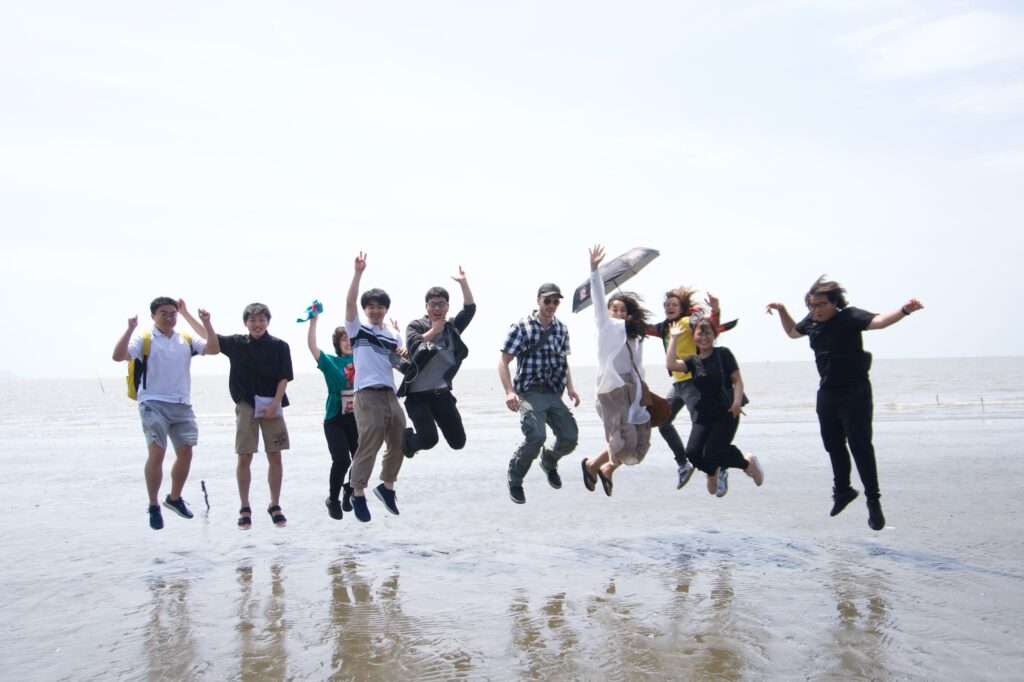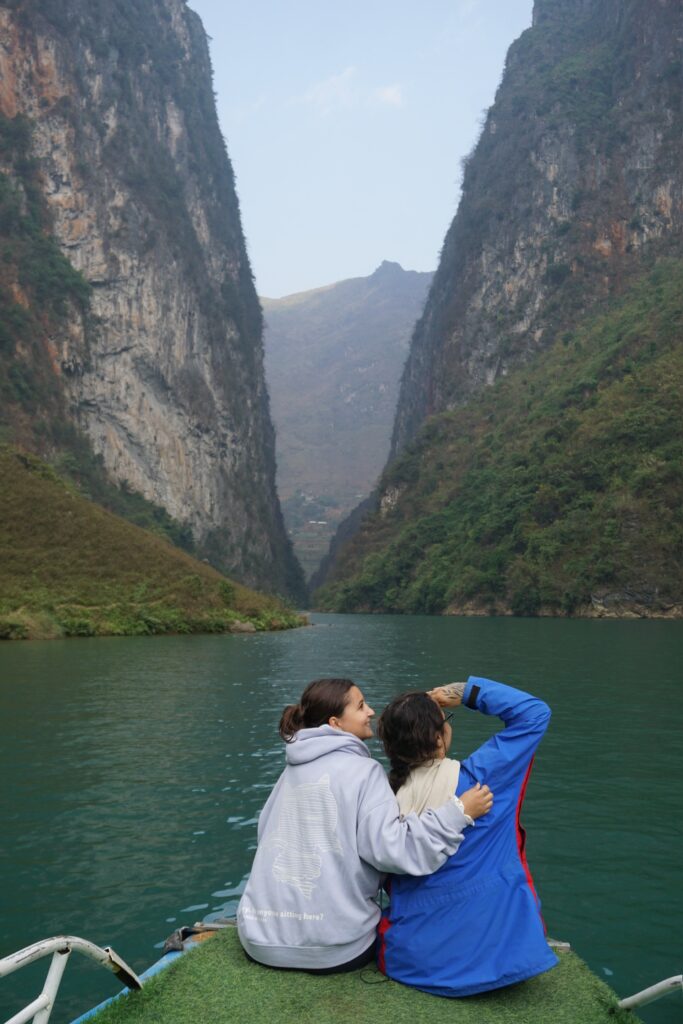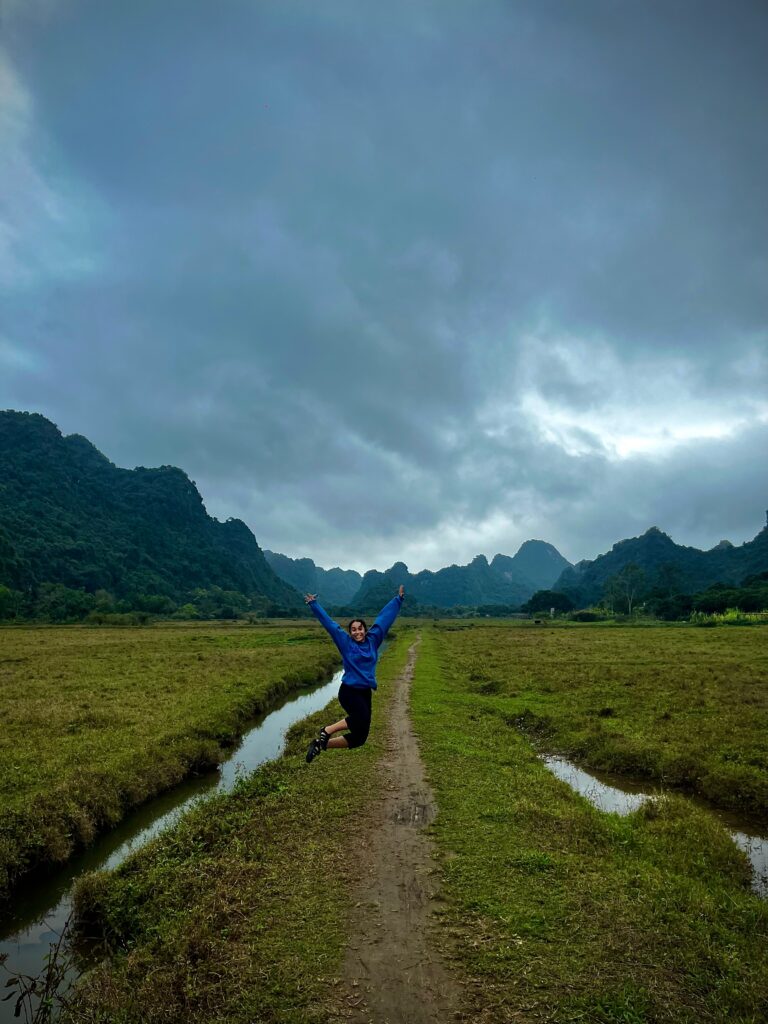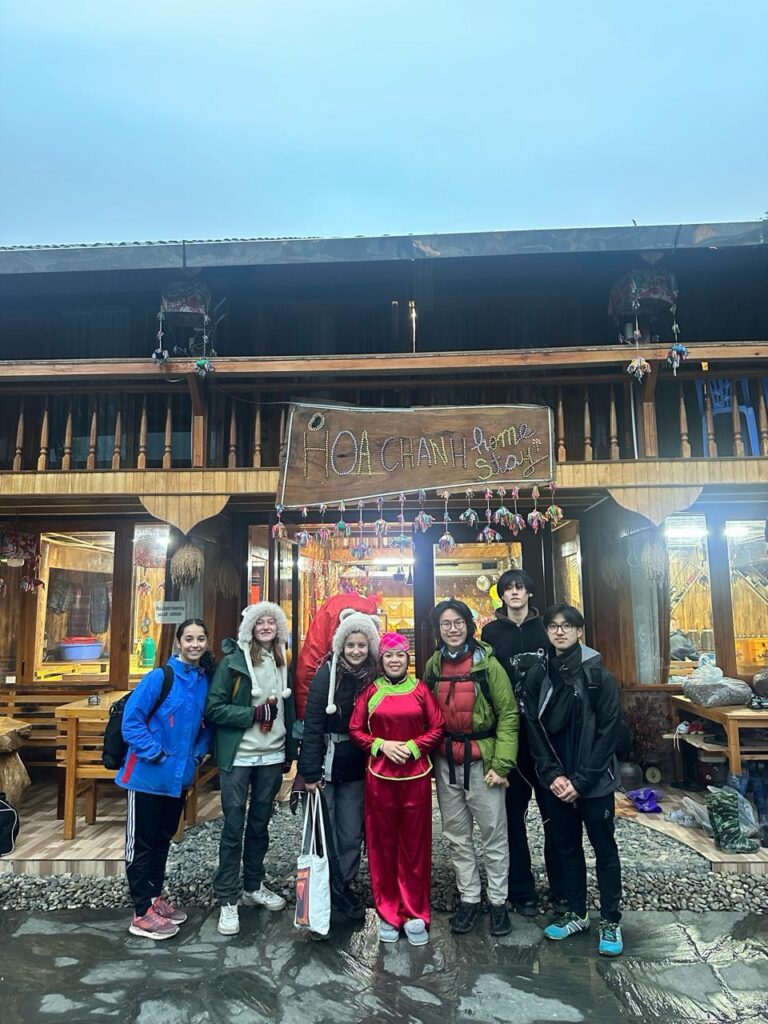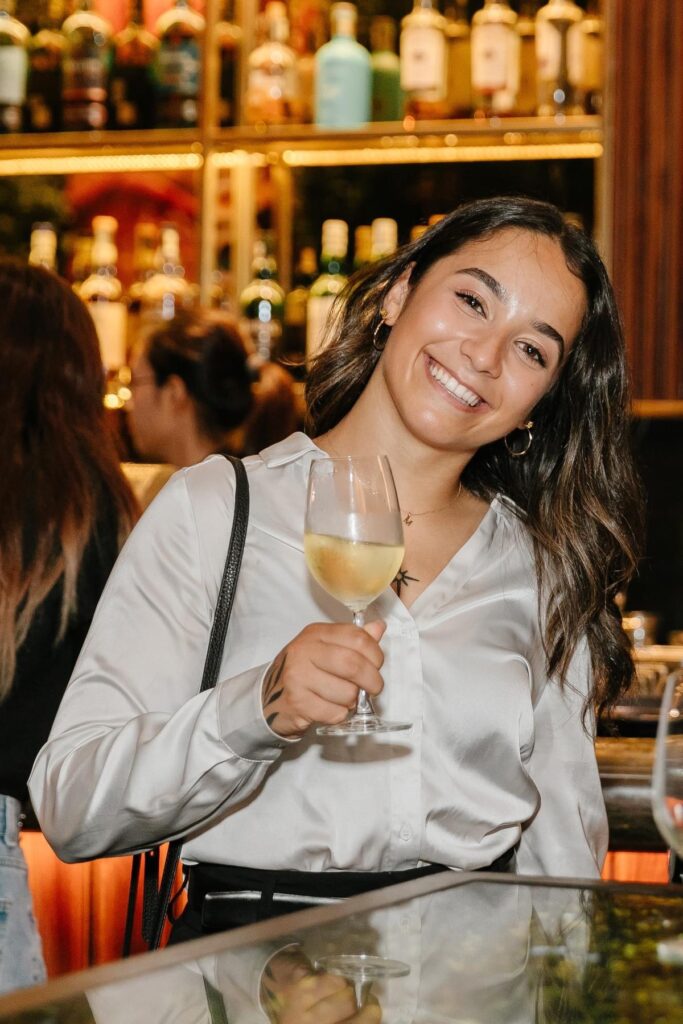Did you know that TRU offers co-op abroad opportunities as well as the traditional study abroad? Read on to hear first-hand about some of the challenges and lessons Mesha is currently experiencing in her Vietnam co-op!
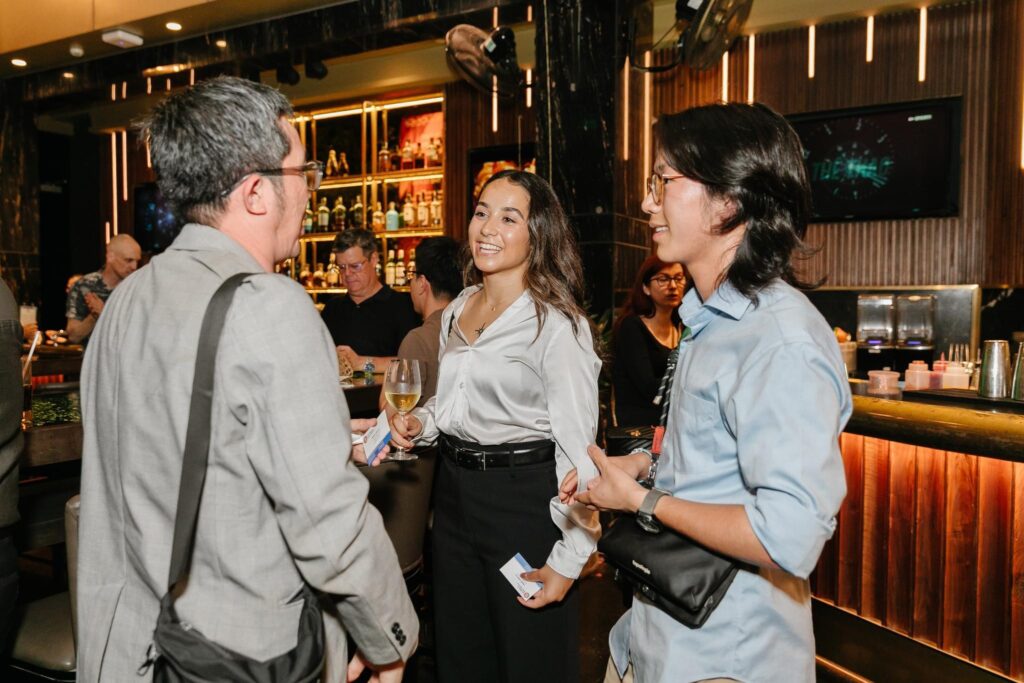
“The biggest realization I had was that no country or culture is better than one another; each has its own unique way of operating, surviving, and navigating through life…”
At least once in our lives we get curious about the idea of experiencing life overseas. Maybe for
some that feeling goes just as fast as it comes, but for me that feeling stuck around from the moment I joined TRU’s Tourism Management program. After finishing my two-year diploma, the urge to experience working life in another country before continuing with my degree was stronger than ever. I knew getting some global perspective would enhance my learning and studies as a tourism student. I had researched study abroad opportunities, watched walking tour videos of random cities abroad on YouTube, and I even considered a workaway. Then one day, caught up in the brunt of my study abroad research, I opened my emails to see that my prayers had been answered by the TRU co-op abroad department. I swear it was like they were reading my mind; the email was about a university teaching assistant opportunity in Vietnam, and I jumped on it without hesitation.
Five months later, I’m sitting in a little Koi fish coffee shop called Sao Cung Duoc in Vietnam writing this blog post.

I received the email for the opportunity on Friday, November 3rd, 2023. The information session
revealed that the position was for the beginning of January 2024. This meant I had a solid two months to prepare my travel documents, book flights and say my goodbyes. Everything moved quite quickly and smoothly with the help of Jamie, Thomas, and the co-op coordinator in Vietnam, but a lot of the process is also student driven, which means your eagerness to take advantage of an opportunity like this is put to the test!
Truthfully, I never thought I would go to Vietnam. It wasn’t a country I had considered as I never
knew much about it, but now that I am here, I wouldn’t have it any other way. I wasn’t picky about what country I wanted to go to, I just knew that my priority was to experience working life abroad and to subject myself to new experiences while I’m young. So, with an open mind and a willingness to learn and adapt, I took the plunge.
The university I’m working for is called Industrial University of Ho Chi Minh City. I am the first
foreign teaching assistant assigned to the faculty of Tourism. The university has recently implemented a program that blends foreign, English-speaking students to the studies and classrooms of the Vietnamese students so that they can:
1. Gain exposure to Canadians and foreigners
2. Learn English
3. Take part in cultural exchange
Although I am in the faculty of tourism, they are hiring foreign students for many other faculties also such as engineering and linguistics. This university is one of many in Vietnam trying to strengthen the education of Vietnamese students through cultural exchange.
I had no idea what to expect before coming here, other than what was listed on the job
description and information that was revealed through meetings. I had previous travel experience, so I knew that keeping an open mind and expectations low was a must to deal with any unforeseen changes. The co-op department prepared me well for the logistics and safety of the trip and the co-op coordinator in Vietnam prepared me for the living and teaching situation to some degree, but with such a new program there have been many adjustments and personal challenges that no one could have prepared me for.
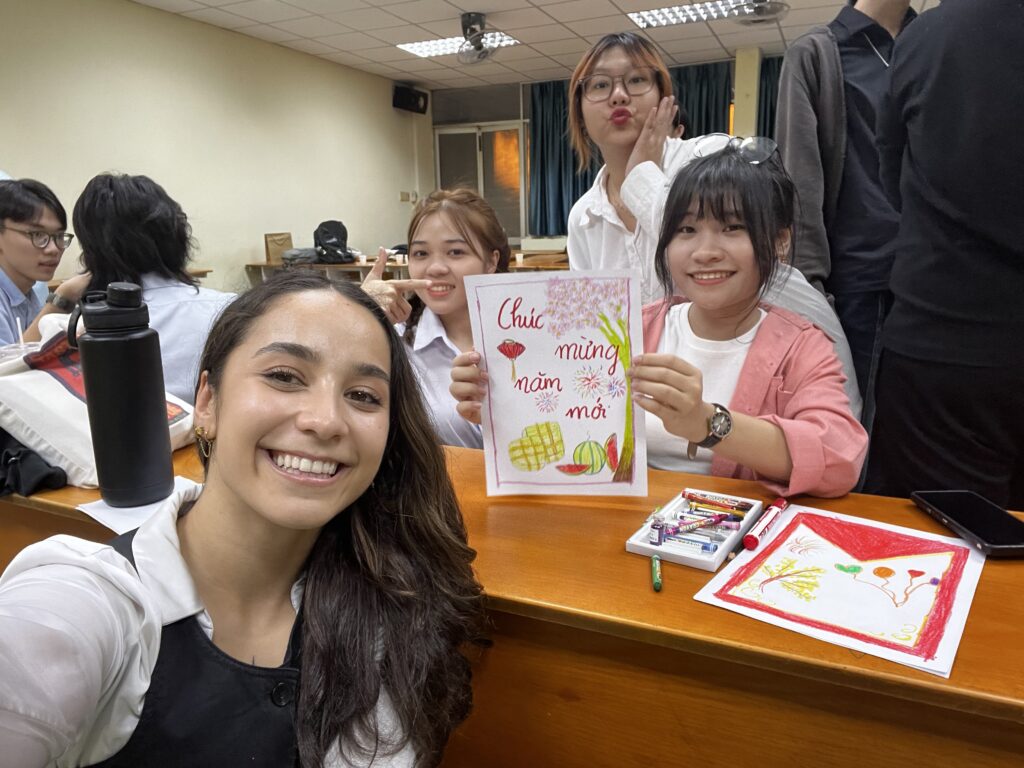
Here’s where I get into the meat and potatoes of the experience. Now that I’ve been here for
about two and a half months, I can honestly say this co-op abroad has overall been a positive, eye-
opening experience. I have been equipped with some of the best experience and skills I will ever get in my life. Not only am I learning the skills of becoming a teacher, but also gaining a deep understanding of cultural and societal differences in the world. This experience has caused me to reflect a lot on my own country and the challenges our international students face when studying at TRU.
Here are some of the real challenges I’ve had to face and what I’ve done to overcome them.
Language barriers:
Only about 10% of students can speak fluent English, while 40-50% of students
can speak partial English with a restricted vocabulary. To overcome this, I’ve been taking Vietnamese classes to try and communicate in both languages. I’ve also learned to pay more attention to body language and intuition. You can learn a lot about what someone is trying to tell you just by their body language, facial expressions, and energy. But with trying to decode communication in another language comes a lot of emotional labor. Being patient and understanding is key to communicating with someone who speaks a different language.
Adjusting from an individualist culture to a collectivist culture:
Coming from Canada where we are focused on the rights and concerns of each person, I’ve had to adapt to society in Vietnam where energy is put more towards the importance of community and relationships rather than oneself. I learned to be more comfortable having people share with you, care for you, help you and not receive individual praise but rather praise for the achievements of a group instead. Also setting aside time to care for friendships and relationships through quality time, gift giving, and check-ins are super important.
Femininity & masculinity:
In Canada, there are many women in business, leadership roles, sports,
trades and so on. Vietnam is still very much a male-oriented country where women are more obedient and dependent on their male counterparts. That’s not to say women aren’t important here, in fact women are treated with great importance regarding their societal roles. It is still common to see more of the men in leadership, trades, and sports where women are regarded important in nurturing and emotional roles. But that’s not to say that all are! I’ve met many strong women playing soccer here as well as women in leadership roles but its just simply not as common as it is in Canada and having to adjust to the amount of space and freedom I could take up as a woman in certain situations was a bit of learning curve.
Power dynamics:
Knowing how to navigate a country where society accepts hierarchies and depends
on their superiors to make decisions rather than inter-depending with superiors has been one of the
biggest unforeseen adjustments for me. In Canada, I was quite close with my previous bosses and felt respected enough to voice any concerns, issues or improvements that could be made. I organically fell into leadership roles because of it. Some of the first frictional moments I experienced was trying to organize a schedule with my teachers, trying to organize lessons for the students and then being told to do something completely different the next day, I had felt helpless no matter how much I tried to organize, help, or make things happen and that’s where I had realized that that just simply not how it works here! Instead of the horizontal, interdependent structure we have with our superiors in Canada, the power distance in Vietnam was much greater, meaning that people depend on and accept that their superior is to make all decisions and eventually organize what is to be done in a much more top-down vertical way that takes a bit more time than it would back home. Which leads me to the next point:
Uncertainty:
In most western societies, we are organized, punctual, and extremely productive but
also flexible with change and going with the flow. In more traditional southeast Asian cultures, sticking to the good ol’ rule book is most commonly the way to go, so with new programs and new foreigners added to the equation it takes a long time for the system to create new rules and then adjust to those rules. So, there are some things I had to deal with and not know what the outcome was until my superior had created solutions. In that time, I needed to be patient with not knowing what to do and accept that I wasn’t able to do anything about it. In the end, everything always ended up working out.
Not visually meeting societal standards (tattoos, being sporty and having an uncommon body type):
Beauty standards are completely different all over the world. In Vietnam I stick out like a sore
thumb. As a young woman who plays sports, has tattoos, curly hair and loves expressing oneself through fashion, I had to accept that there were many people who would not agree or feel uncomfortable with the presence of someone who goes against normal standards. Instead, I focused on appreciating those who do accept and appreciate me. There are many supportive people here that do and a lot of people who also push beauty standards.
Adjusting to the living standards:
Coming from Canada where living standards are high and most of
us have our own private spaces to retreat to, it was quite the adjustment moving to Vietnam but also made me realize how possible and easy it is to live with less and be grateful for what we do have.
Reflecting on these challenges has made me realize how grateful I am to have experienced them.
This is what it’s all about; Stepping outside your comfort zone and understanding the world around you! The biggest realization I had was that no country or culture is better than one another, each has its own unique way of operating, surviving, and navigating through life. I still believe this is one of the greatest, most humbling opportunities I have been blessed with.
Speaking of opportunities, not only have I been able to grow my personal skill set and gain
experience in an international workplace, but I’ve also been able to make amazing friendships and
connections with people that it feels like I’ve known for a lifetime. I’ve also had the extra time to travel around the country and experience how different life is in the North of Vietnam compared to my life in the South.
Only two out of four months in I feel that this experience will greatly impact my academic
foundation moving forward. I’ve realized that international work is potentially a road I would like to
continue down. Regardless of what career path I end up pursuing, the experience gained from this co-op has positively changed my outlook on life and the skills I have gained from it have given me the confidence to work well in a dynamic and diverse workplace.
To future students who are interested in pursuing a co-op abroad, the best advice I could give you is to be patient, understanding, open-minded and communicative. Be patient with yourself when adapting to new cultures and languages. Understand that it takes time to meet on common ground with others. There will be many differences and new things to experience, so be open to it! Communicate with friends, support, and family when you’re feeling homesick and communicate your needs to others. Also, listen to your body and allow yourself some space to rest. It’s so exciting to be in another country, and you can often feel pressured to try and experience as much as you can in the short amount of time you have – but rest and reflection are just as important.
Lastly, make sure to reflect and ask yourself questions. If you feel frustrated, why? If you enjoy an aspect of the culture more than your own, why? If you notice something in the country that isn’t the same as your own, get curious about it! You’ll learn many things about yourself and this world that you couldn’t have imagined learning before. This world is a giant mystery and by gaining some global perspective you can reveal some of its greatest secrets.
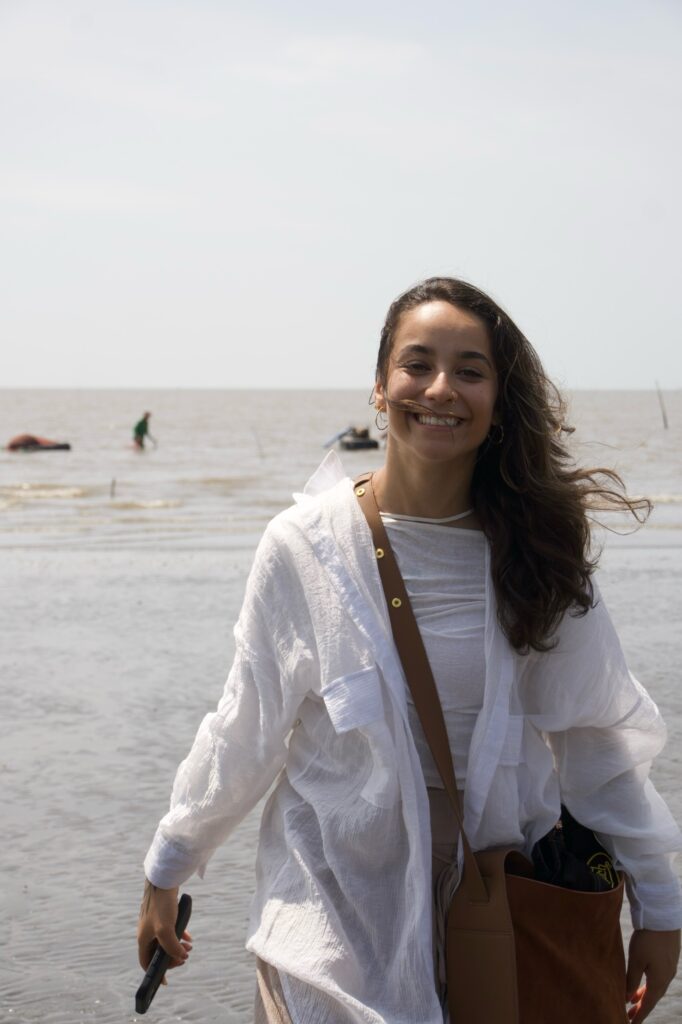
– Mesha
Feeling inspired? A co-op abroad opportunity could be for you!
For further information on co-ops, check out the Study Abroad website, and follow us on Instagram for up to date opportunities!

